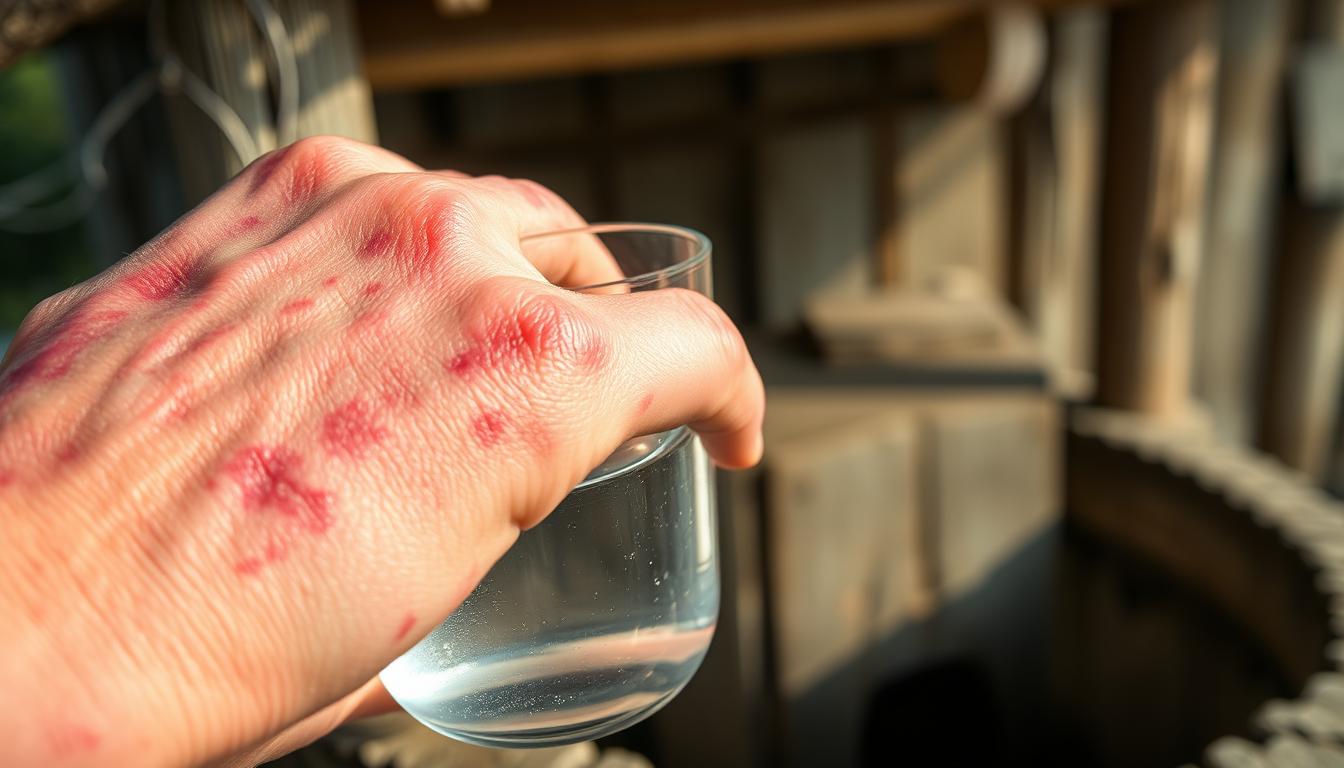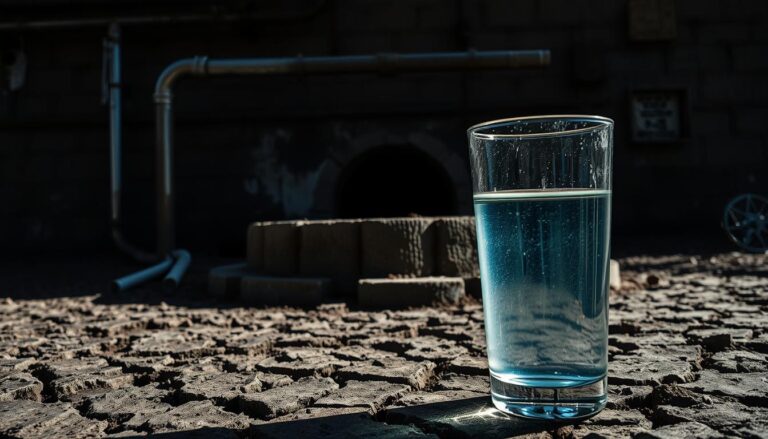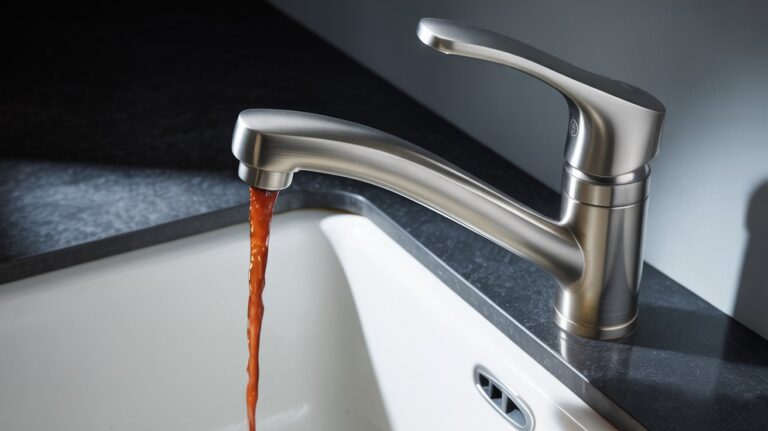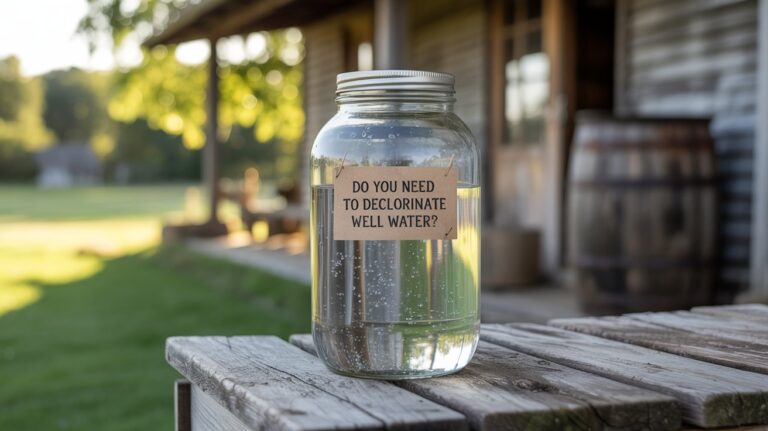Well Water and Itchy Skin: What You Need to Know
Are you experiencing persistent itchy skin and using well water at home? You’re not alone. Many people rely on well water for their daily needs, but it may contain contaminants that affect skin health.
The connection between well water quality and skin irritation is a growing concern. Various contaminants in well water might be the culprit behind your itchy skin. Understanding this link is crucial for maintaining healthy skin.
Key Takeaways
- Well water contaminants can affect skin health.
- Itchy skin may be a sign of poor water quality.
- Regular testing of well water is essential.
- Simple treatments can improve well water quality.
- Maintaining good skin hygiene is crucial.
The Connection Between Well Water and Skin Health
For those using well water, it’s vital to recognize how it might be influencing their skin’s health and appearance. Well water can contain higher levels of minerals and contaminants than municipal water, which can affect the skin in various ways.
How Water Quality Affects Your Skin’s Barrier
The skin’s barrier function is its first line of defense against external factors. Water quality plays a significant role in maintaining this barrier. Contaminants in well water, such as minerals and bacteria, can strip the skin of its natural oils, leading to dryness and irritation. The skin’s pH level can also be disrupted by certain contaminants, further compromising its barrier function.
Some key factors to consider:
- Mineral content: High levels of minerals like calcium and magnesium can affect skin hydration.
- Bacterial contaminants: Presence of bacteria can lead to infections and skin issues.
- pH level: Water that is too alkaline or acidic can disrupt the skin’s natural pH balance.
The Unique Characteristics of Well Water vs. Municipal Water
Well water and municipal water have distinct differences in terms of treatment and content. Municipal water is treated with various processes to remove contaminants and achieve a consistent quality. In contrast, well water is not subject to the same treatment processes, making its quality more variable.
The unique characteristics of well water, such as its mineral content and potential for bacterial contamination, can have significant dermatological effects. Understanding these differences is crucial for individuals relying on well water to maintain good skin health.
Can Well Water Cause Itchy Skin?
Itchy skin can be a frustrating condition, and for those using well water, it’s natural to question whether their water supply is to blame. The connection between well water and skin health is complex, involving various factors that can contribute to itchy skin.
Telltale Signs Your Well Water Is Irritating Your Skin
Several signs may indicate that your well water is causing skin irritation. These include:
- Persistent itchiness after showering or bathing
- Dry, red, or inflamed skin
- Eczema or dermatitis flare-ups
Noticing these symptoms, especially after switching to or continuing to use well water, can be a strong indicator that the water quality is affecting your skin.
Most Vulnerable Populations: Children, Elderly, and Those with Existing Skin Conditions
Certain populations are more susceptible to the adverse effects of well water on skin. Children and the elderly are particularly vulnerable due to their sensitive skin. Individuals with pre-existing skin conditions like eczema or psoriasis may also experience exacerbated symptoms due to well water.
For those affected, understanding the quality of their well water and its potential impact on skin health is crucial. Consulting a healthcare professional or a water quality expert can provide insights into whether well water is the cause of skin issues and how to address it.
For more information on treating well water, consider exploring solutions like whole-house water distillers, which can significantly improve water quality.
Common Contaminants in Well Water That Affect Skin
Understanding the common contaminants in well water is crucial for maintaining healthy skin. Many individuals who use well water may not be aware of the potential skin-related issues that can arise from its consumption or use.
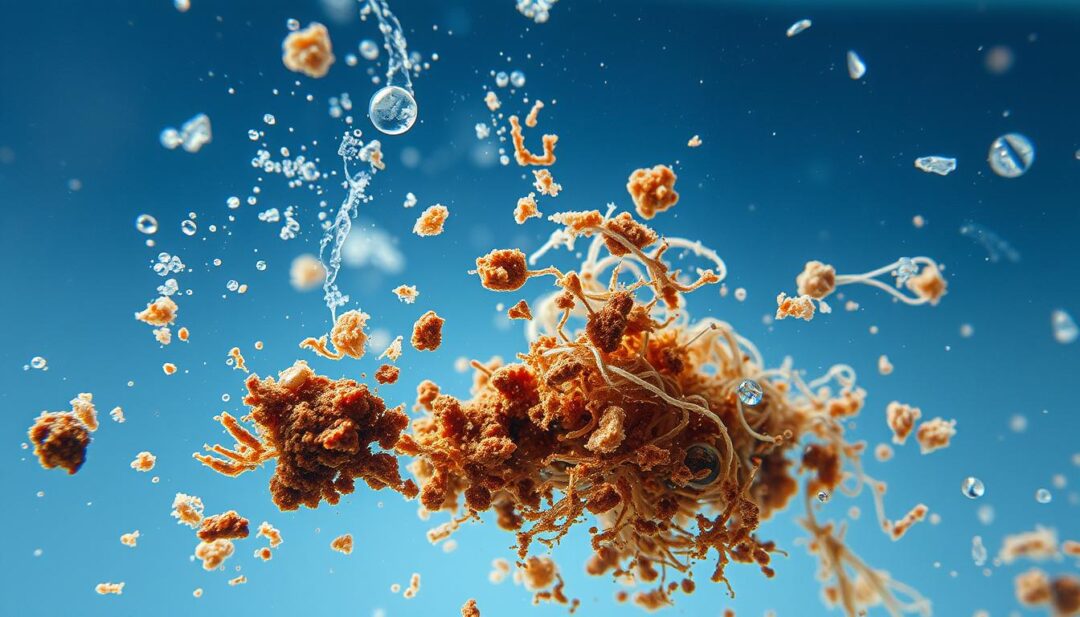
Hard Water Minerals: Calcium and Magnesium Effects
Hard water contains high levels of minerals such as calcium and magnesium. While these minerals are generally beneficial for health, they can cause skin irritation in some individuals. The soap scum formed when soap interacts with these minerals can leave a residue on the skin, potentially clogging pores and causing dryness.
Calcium and magnesium can also affect the skin’s natural pH balance, leading to irritation and itchiness. People with sensitive skin may find that using well water with high mineral content exacerbates conditions like eczema or dermatitis.
Iron and Manganese: The Rusty Culprits
Iron and manganese are common contaminants in well water, often resulting from natural geological processes. While essential in small amounts, excessive levels of these metals can cause skin problems. Iron can lead to reddish discoloration of the skin and hair, while manganese can cause skin irritation and potentially lead to more severe neurological effects with prolonged exposure.
Sulfur and Hydrogen Sulfide: More Than Just Unpleasant Odors
Sulfur compounds, particularly hydrogen sulfide, can give well water an unpleasant odor. However, their impact goes beyond just the smell. Sulfur can have a drying effect on the skin, potentially exacerbating conditions like acne or eczema. In some cases, sulfur compounds can also cause skin irritation directly.
Bacteria, Algae, and Other Microorganisms
Well water can be susceptible to contamination by various microorganisms, including bacteria and algae. These contaminants can lead to a range of skin issues, from mild irritation to severe infections.
Potential Infections and Reactions
Exposure to pathogenic bacteria in well water can result in skin infections, particularly if there are open wounds or compromised skin integrity. Symptoms can range from mild redness and itching to severe reactions requiring medical attention. It’s crucial for individuals using well water to be aware of these risks and take appropriate measures to ensure their water is safe.
Regular testing and treatment of well water can significantly reduce the risk of skin-related issues caused by contaminants. By understanding the potential risks and taking proactive steps, individuals can protect their skin health while continuing to benefit from the use of well water.
How to Identify if Well Water Is Causing Your Skin Issues
Determining whether well water is the culprit behind your skin issues requires a systematic approach. If you’re experiencing persistent skin problems, it’s essential to investigate the potential role of your well water. This involves understanding the unique characteristics of your water supply and how it might be affecting your skin.
The Elimination Method: Testing if Water Is the Problem
One effective way to diagnose whether well water is causing your skin issues is through the elimination method. This involves temporarily switching to a different water source for bathing or showering to observe if your symptoms improve. For instance, you could use bottled or filtered water for a few weeks to see if there’s a noticeable difference in your skin condition.
Key steps in the elimination method include:
- Switching to an alternative water source for a trial period
- Monitoring your skin condition closely during this time
- Reverting to your well water and observing if symptoms return
Differentiating Between Well Water Reactions and Other Skin Conditions
It’s crucial to differentiate between skin reactions caused by well water and other dermatological conditions. Diagnosing well water allergy or sensitivity requires careful consideration of your overall health, other potential allergens, and the specific characteristics of your well water.
Some common contaminants in well water that can cause skin issues include high levels of minerals like calcium and magnesium, iron, manganese, and bacteria. Understanding these potential irritants can help you identify whether your well water is the likely cause of your skin problems.
Tracking Symptoms: When and Where They Occur
Tracking your symptoms is another vital step in determining if well water is causing your skin issues. Keep a log of when your symptoms occur and where on your body they manifest. This can help you identify patterns that may be linked to your water usage.
For example, if you notice that your skin irritation worsens after showering or bathing, it could indicate a reaction to your well water. Similarly, if certain areas of your body that are more exposed to water (like your hands or feet) are more affected, this could further support the diagnosis.
- Record the date and time of symptom onset
- Note the location on your body where symptoms occur
- Correlate these observations with your water usage patterns
By systematically investigating your well water’s impact on your skin through these methods, you can make a more informed decision about whether it’s the cause of your skin issues and what steps to take next.
Testing Your Well Water for Skin-Irritating Contaminants
To determine if your well water is causing skin irritation, thorough testing is necessary. This process involves evaluating the presence of various contaminants that could be affecting your skin health.
Comprehensive DIY Water Testing Options
For homeowners who prefer a hands-on approach, DIY water testing kits are available. These kits can test for various contaminants, including bacteria, nitrates, and heavy metals. However, it’s essential to understand the limitations of DIY testing, as some contaminants may require more sophisticated equipment to detect.
DIY testing kits can be a cost-effective first step, but they may not provide a comprehensive analysis of your water quality. For a more detailed assessment, consider the following:
- Look for kits that test for a broad range of contaminants.
- Follow the manufacturer’s instructions carefully to ensure accurate results.
- Be aware that some contaminants, like certain bacteria or viruses, may require specialized testing.
When to Call in Professional Water Testing Services
While DIY kits can provide initial insights, professional water testing services offer a more thorough and accurate analysis. These services use advanced equipment and techniques to detect a wide range of contaminants, including those that might not be identified through DIY testing.
Consider hiring professionals if:
- You suspect contamination based on taste, odor, or appearance.
- You’re experiencing persistent skin issues that might be related to water quality.
- You want a comprehensive analysis to ensure your water is safe for all uses.
Interpreting Your Water Test Results
Once you’ve received your water test results, understanding what they mean is crucial. Your report should outline the levels of various contaminants and compare them against safe or maximum allowable limits.
Key Measurements That Impact Skin Health
Certain contaminants are particularly relevant when considering skin health. Pay close attention to levels of:
| Contaminant | Potential Skin Impact | Safe Level |
|---|---|---|
| Iron | Can cause dryness and irritation | <0.3 mg/L |
| Manganese | May lead to skin discoloration | <0.05 mg/L |
| Sulfur | Can cause unpleasant odors and skin irritation | <0.5 mg/L |
For more information on well water contamination and its symptoms, visit Freshwater Systems.
Treatment Solutions for Problem Well Water
Treating problem well water is crucial for ensuring safe and healthy water usage. Well water can contain various contaminants that affect its quality and safety, necessitating effective treatment solutions.
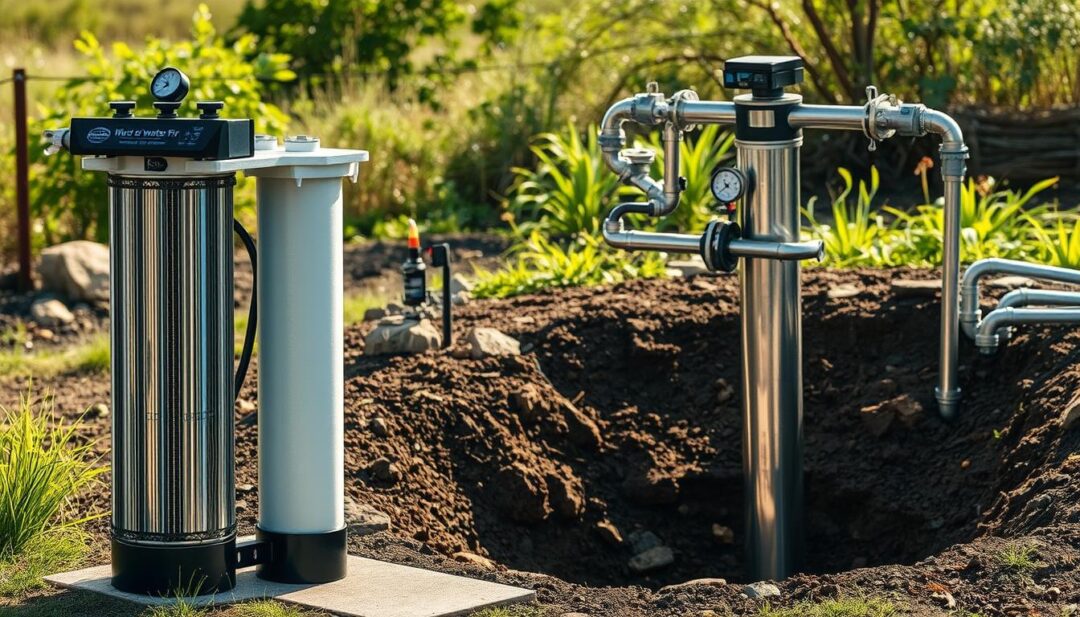
Water Softeners: Types, Costs, and Installation
Water softeners are a common solution for addressing hard water, which is rich in minerals like calcium and magnesium. These minerals can cause scaling on appliances and plumbing, and can also affect skin health. Water softeners work by replacing these minerals with sodium or potassium ions, thus reducing the water’s hardness. The cost of water softeners varies widely, from a few hundred to several thousand dollars, depending on the type and capacity. Installation costs should also be considered, as they can add to the overall expense.
Iron and Manganese Removal Systems
Iron and manganese are common contaminants in well water, causing aesthetic issues like discoloration and unpleasant taste or odor. Removal systems typically involve oxidation and filtration, where the contaminants are oxidized and then filtered out. The cost of these systems can vary, but they are generally more affordable than whole-house filtration systems.
Whole-House Filtration Options for Comprehensive Protection
For comprehensive protection against a wide range of contaminants, whole-house filtration systems are an effective solution. These systems filter all the water in a household, ensuring that every tap provides clean and safe water. They can remove various contaminants, including sediments, chemicals, and heavy metals. While they are among the more expensive treatment options, they offer broad-spectrum protection.
UV Purification Systems for Biological Contaminants
UV purification systems are designed to address biological contaminants like bacteria, viruses, and algae. These systems use ultraviolet light to inactivate microorganisms, making the water safe for consumption and use. UV systems are often used in conjunction with other treatment methods for comprehensive protection.
Cost-Benefit Analysis of Different Treatment Methods
When selecting a treatment solution, it’s essential to conduct a cost-benefit analysis. Factors to consider include the initial cost of the system, ongoing maintenance costs, and the benefits of improved water quality. While some systems may have higher upfront costs, they may offer long-term savings and health benefits. By weighing these factors, homeowners can make informed decisions about the best treatment solution for their well water.
Skin Care Strategies for Well Water Users
For individuals relying on well water, adopting the right skin care strategies is crucial to mitigate potential skin irritations. Well water can contain various contaminants that may affect skin health, but there are several measures that can be taken to minimize these effects.
Protective Moisturizers and pH-Balancing Products
Using protective moisturizers is a fundamental step in safeguarding skin health. Look for moisturizers that are rich in natural ingredients and have a pH level close to that of the skin (around 5.5). pH-balancing products can help maintain the skin’s natural barrier, reducing the risk of irritation.
Shower Filters: A Budget-Friendly First Step
Installing a shower filter is a cost-effective way to reduce contaminants in well water that come into contact with your skin. These filters can remove chlorine, heavy metals, and other impurities, helping to prevent dryness and irritation.
Adjusting Your Bathing Routine to Minimize Irritation
Adjusting your bathing routine can also play a significant role in minimizing skin irritation. This includes reducing the frequency of baths or showers, using warm rather than hot water, and limiting the use of harsh soaps.
Natural Remedies for Well Water-Induced Skin Problems
Several natural remedies can provide relief from skin irritations caused by well water. Oatmeal baths, for instance, are known for their soothing properties, while aloe vera can help calm irritated skin. Additionally, coconut oil and shea butter are effective moisturizers that can help restore the skin’s natural barrier.
| Skin Care Strategy | Benefits |
|---|---|
| Protective Moisturizers | Maintain skin’s natural barrier, reduce irritation |
| Shower Filters | Remove contaminants, prevent dryness |
| Adjusted Bathing Routine | Minimize exposure to irritants, reduce dryness |
| Natural Remedies | Soothe and calm irritated skin, restore moisture |
Long-Term Effects of Problematic Well Water on Skin Health
Prolonged exposure to contaminated well water can have severe long-term consequences on skin health. Using well water with certain contaminants over an extended period may result in chronic skin problems that are challenging to manage.
Chronic Dryness and Premature Aging
One of the most common long-term effects of using contaminated well water is chronic dryness. The presence of certain minerals and contaminants can strip the skin of its natural oils, leading to persistent dryness and irritation. Over time, this can contribute to premature aging, including the formation of fine lines and wrinkles.
Potential for Recurring Dermatitis and Eczema Flare-ups
Contaminated well water can also trigger recurring dermatitis and eczema flare-ups. The skin’s natural barrier function is compromised when exposed to irritants in the water, making it more susceptible to these conditions. For individuals prone to skin conditions like eczema, using contaminated well water can exacerbate symptoms and lead to more frequent flare-ups.
For more information on how contaminated water can affect skin health, visit Olympian Water Testing to learn about the potential risks associated with showering in contaminated water.
Impact on Children’s Developing Skin
Children’s skin is particularly vulnerable to the effects of contaminated well water. Their developing skin barrier is more susceptible to irritation and damage, making it essential for parents to be aware of the potential risks. Long-term exposure to contaminants in well water can lead to persistent skin issues in children, potentially affecting their skin health into adulthood.
Psychological Effects of Persistent Skin Issues
The psychological impact of persistent skin issues should not be underestimated. Chronic skin problems can lead to decreased self-esteem, anxiety, and stress. Addressing the root cause of skin issues, such as contaminated well water, is crucial for mitigating these psychological effects and improving overall well-being.
Conclusion
Ensuring good well water quality is crucial for maintaining healthy skin. As discussed, well water can contain various contaminants that may cause itchy skin, dryness, and other skin issues. Understanding the connection between well water and skin health is the first step towards addressing these problems.
Testing your well water for contaminants and implementing appropriate treatment solutions can significantly improve skin health. Options range from water softeners and iron removal systems to whole-house filtration and UV purification systems. By choosing the right treatment, you can reduce the risk of skin irritation and maintain healthy, hydrated skin.
In addition to treating your well water, adopting skin care strategies such as using protective moisturizers, pH-balancing products, and shower filters can help minimize skin irritation. By taking a comprehensive approach to well water treatment and skin care, you can enjoy the benefits of your well water while protecting your skin.
Prioritizing well water quality and skin health is essential for overall well-being. By being proactive about well water treatment and taking steps to care for your skin, you can prevent long-term skin damage and maintain healthy, resilient skin.

